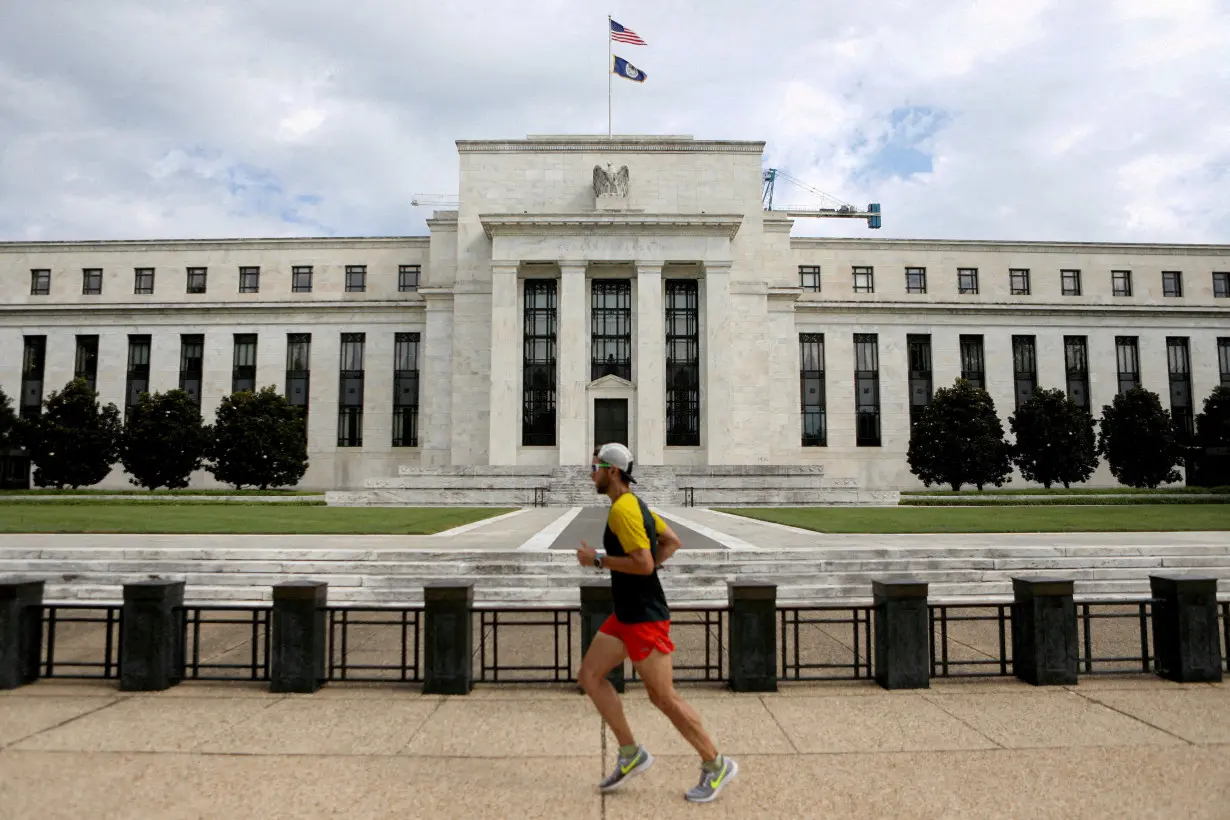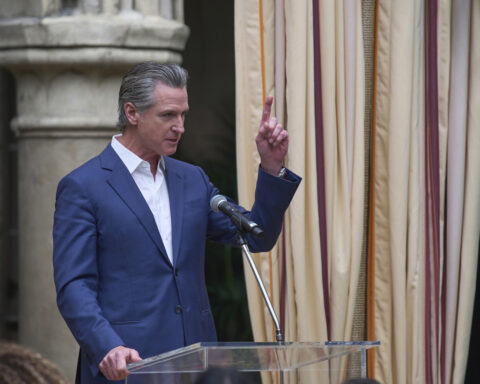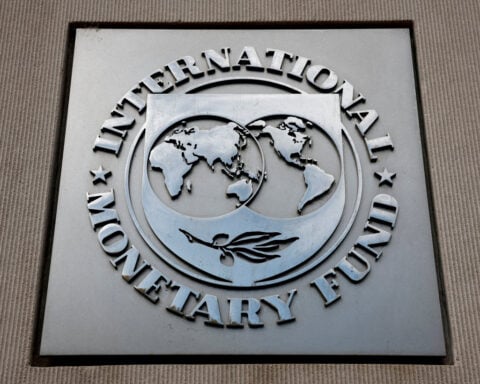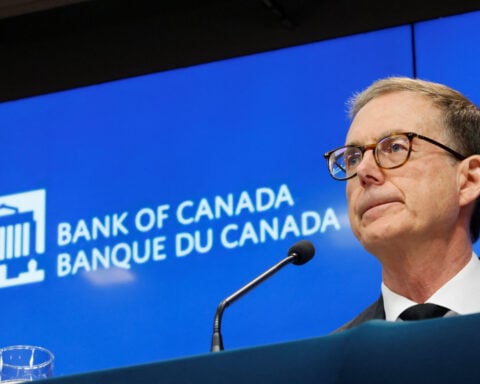By Mike Dolan
LONDON (Reuters) -If steep interest rate hikes failed to slow the U.S. economy much in recent years, it is reasonable to ask whether their reversal will prove as toothless in a downturn.
One of the puzzles of the past two years has been how five percentage points of tightening by the Federal Reserve between March 2022 and July 2023 had so little effect on the overall economy.
Despite the borrowing squeeze, U.S. real GDP has clocked annualized growth rates in excess of 2% in seven of the eight quarters since the middle of 2022 - and is on course to add to that tally in the three months through the end of September.
And for all its seasonal wobbles, the stock market is close to record highs.
This suggests that the economy has become increasingly desensitized to changes in short-term borrowing costs. If that is the case, then policymakers should be anxious that any slowdown from here - or even a cyclical recession - might also be inured to monetary policy easing.
Several theories about this resilience to high rates abound: the peculiarity of the COVID-19 pandemic years, including the ample household savings and government spending present before the tightening; the high level of fixed-rate debt in the U.S., most notably mortgages; and elevated aggregate corporate cash levels that more than offset the hit that small firms took from the increase in debt servicing costs.
The last of the three is perhaps the most remarkable. Net interest payments made by U.S. firms as a share of GDP were halved during the tightening cycle, according to a recent International Monetary Fund report. Other research shows U.S firms' net interest payments as a share of cash flow have also fallen since 2022 to their lowest level in almost 70 years.
SENSITIVITY LOW
So what of the implications?
Interest rates are clearly set to come back down, with the Fed widely expected to start its easing next week. But given the limited economic impact of rates on the way up, some analysts have argued the U.S. central bank might need to push rates extremely low to stimulate the economy if a recession does indeed unfold.
Others may argue that the impact of higher rates has just been delayed and that the lagged effect over the past two years is evident in the erosion of cash levels on some household and corporate balance sheets.
But corporate borrowers are having little trouble rolling over their debt, even if they have to refinance at higher rates. Last week saw 59 new debt sales totaling more than $81 billion, the fifth-biggest weekly volume ever for investment grade companies, according to IFR.
Some investors think this complex picture should inject much more caution into the Fed's thinking than markets are currently pricing in.
Yves Bonzon, the chief investment officer at Julius Baer, reckons uncertainty regarding the transmission of monetary policy to the private sector is "very high," largely because, as he argues, interest rates rose primarily to rein in "an income-driven rather than a debt-driven economic expansion".
"If the real economy's sensitivity to interest rates is unusually low, it is not clear how asset prices will react should the Fed meet market expectations and cut aggressively."
Bonzon's main point is that Fed easing in the absence of recession may well stimulate already accelerating private-sector credit growth, spur the housing market and related sectors and even revive the rate-stricken leveraged buyout and private equity market.
"In that context, the Fed would be mindful to avoid an asset price boom-and-bust cycle," he said, adding that three quarter-percentage-point rate cuts to start would be more than enough while the U.S. central bank continues to assess things.
For BlackRock credit strategists Amanda Lynam and Dominique Bly, it all hinges on what you think the Fed is actually doing here.
Is it easing to offset signs of looming recession or just recalibrating now that inflation rates have moderated?
If it's the former, then that could result in deep policy rate cuts, but could also see a near doubling of high-yield credit spreads amid fears of a downturn.
On the other hand, the BlackRock strategists figure that if the Fed is just "normalizing" here, its terminal rate will likely end up much higher, around 3.5%, and credit spreads stay where they are.
Whatever your take, it's clear that no one - including the Fed - can be completely sure how this story will unfold over the coming year. That means investors should expect more edgy months like the one we are in right now.
The opinions expressed here are those of the author, a columnist for Reuters
(by Mike Dolan; Editing by Paul Simao)

 Trump has begun another trade war. Here's a timeline of how we got here
Trump has begun another trade war. Here's a timeline of how we got here
 Canada's leader laments lost friendship with US in town that sheltered stranded Americans after 9/11
Canada's leader laments lost friendship with US in town that sheltered stranded Americans after 9/11
 Chinese EV giant BYD's fourth-quarter profit leaps 73%
Chinese EV giant BYD's fourth-quarter profit leaps 73%
 You're an American in another land? Prepare to talk about the why and how of Trump 2.0
You're an American in another land? Prepare to talk about the why and how of Trump 2.0
 Chalk talk: Star power, top teams and No. 5 seeds headline the women's March Madness Sweet 16
Chalk talk: Star power, top teams and No. 5 seeds headline the women's March Madness Sweet 16
 Purdue returns to Sweet 16 with 76-62 win over McNeese in March Madness
Purdue returns to Sweet 16 with 76-62 win over McNeese in March Madness








